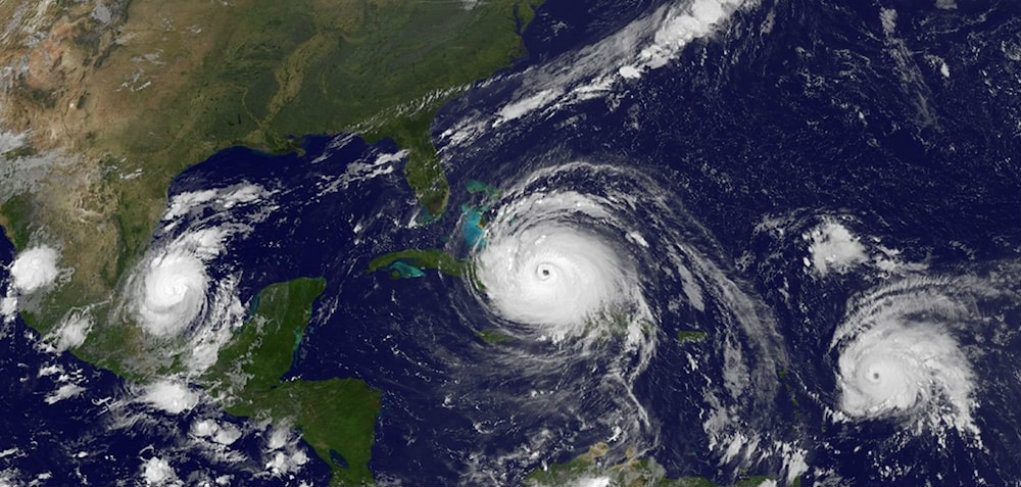
2018 Atlantic Hurricane Season
As we start to enter the peak of hurricane season, usually mid August through mid October, thought it made sense to provide some coverage on hurricanes.
Hurricanes are a type of storm called a tropical cyclone, a rotating low pressure system with no front and winds exceeding 74 mph. Hurricanes are measured and categorized based on the speed of their winds from 1, the weakest, to 5, the strongest. Here in the United States, hurricanes are a regular occurrence on the east coast, so when we discuss hurricane season the focus is on the Atlantic ocean because hurricanes are rarely experienced on the west coast.
The reason why hurricanes rarely appear on the west coast is twofold. These tropical cyclones feed on warmer water, usually 80 degrees or higher, and the water temperature in the northern Pacific is usually well under 75 degrees. The other reason is hurricanes tend to blow from east to west so when they form in the Atlantic the mainland gets in the way where when they do emerge in the Pacific they just blow out to sea. As a result, since 1850 only 7 hurricanes / tropical cyclones have brought gale force winds to the southwestern US, the last one over 20 years ago in 1997.
So as the hurricane season gears up in the Atlantic, what is to be expected? Is it going to be like last year which was the costliest on record? Luckily, right now it's looking like the Atlantic hurricane season will be much milder in 2018 and there are 3 key reasons for this: 1) drier rather than moister air conditions; 2) colder water temperatures and 3) stronger wind shear. In fact yesterday, the National Oceanic and Atmosphere Administration (NOAA) lowered its forecast for the 2018 hurricane season. That being said, we should remember it only takes a single storm to change things and this season still has ~3.5 months left.
It's the "science" of forecasting that has recently caught my interest because as climate change becomes more widely acknowledged, suggesting temperatures around the globe are rising, this should mean that hurricane activity will not only increase in the coming years, but they will also likely be stronger as well (remember, hurricanes like warmth). In my research I came across several sites that I thought were worth sharing including the Center for Severe Weather, Hurricanes: Science and Society and the National Hurricane Center that have helped educate me (special thanks to Chris Knowlton of the Inner Space Center at the University of Rhode Island's Graduate School of Oceanography).
While there's a great deal more to discuss, we'll continue this in a future post.
